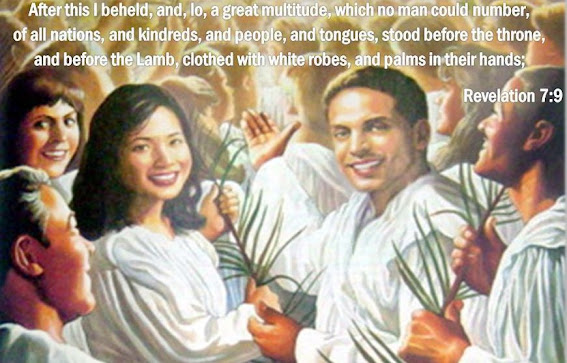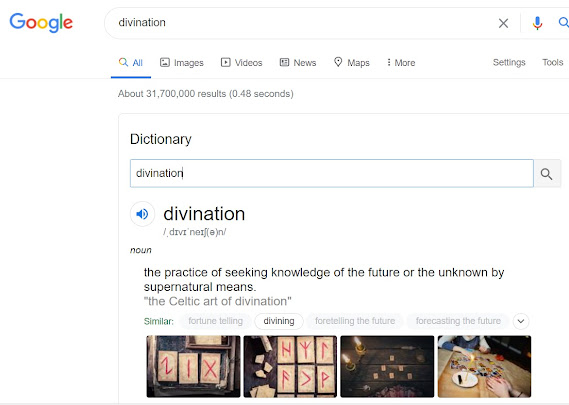One New Man in Christ
By Stephen Ng
After this I looked, and behold, a great multitude that no one could number, from every nation, from all tribes and peoples and languages, standing before the throne and before the Lamb, clothed in white robes, with palm branches in their hands. Revelation 9:7
As theologians study World Christianity, it has become more obvious where the Church is heading to.
Throughout
history, study of missionary movement shows us that as the incarnation of
Christ, which took place in the Jewish town of Bethlehem, later affected a
group of fishermen, tax collectors and women, it is translated into a number of
cultures and population demographics, beyond the confines of a chose ethnic
group living in the land of Israel.
The
God who introduced Himself to Moses as ‘the God of Abraham, Isaac and Jacob’
became known not as Yehovah or Elohim, but as Kyrios and Theos to the
Greek-speaking diaspora since the translation of the Old Testament into Greek
(otherwise known as the Septuagint), and later, as Deus in Latin.
The
concept of Messiah, familiar only to God’s chosen people, took on a new title
when John introduced Him as the logos, which Professor Lamin Sanneh in his
book, ‘Translating the Message: The Missionary Impact on Culture,’ as ‘a piece
of intellectual transposition that signalled a paradigm shift.’ Long before
Christ was born, Aristotle had spoken about logos as a Greek idea, and in a
hymn, it was attributed to the Greek god, Zeus.
Likewise,
because Greek, in particular koine (or marketplace) Greek was the lingua franca
of the day, just as the word Elohim was translated as Theos in the Septuagint, the
name Yeshua was translated into Greek as Iēsous.
When
Greek gave way to Latin as the lingua franca of the day, the name became known
as IESVS for many centuries, before it was translated into English in 1611 as
Jesus.
Unlike
religion of Islam, which rigidly retains the Arabic language, Christianity is
translatable to every new culture. In continents where the Bible was translated
into the local languages, it brought about conversion and transformation to
individuals, tribes and even nations in Africa.
*Christianity
Moving South*
Theologians
have realised that, since the last century, church history cannot be confined
to only the Europe or North America, in what theologians coined as the North.
Reformation, and Renaissance which followed after, for example, was confined to
Europe, and this cannot be the entire syllabus for Church History taught in
seminaries.
Increasingly,
as the centre of Christianity has migrated from North to the South, in the
continents of Latin America, Africa and Asia, as Christian growth in these
continents has outpaced the North.
With
the emerging Southern Christianity comes the new faces of Christianity,
sometimes unthinkable for. One feature of the church, that is closer to home,
is the way how our churches are worshipping in former warehouses and factory
buildings, instead of the traditional Romanesque, Gothic,
and Renaissance styles that characterise Northern Christianity.
Instead
of the usual hymns composed in the 17th and 18th century, worship services in a
Latino church, for example, may become salsa-based, while in an African church,
worship may be accompanied with dances around the sanctuary.
The
gospel would not be preached in stadiums or big tents ala the Billy Graham-style
in North America, but by a team of Chinese opera singers on a grand stage
enhanced by 3D images and special multi-coloured laser lights.
The
new classical novel may no longer be Pilgrim’s Progress, but “Abu slaying the
Dragon” while the bonjo may replace the electric guitar in Christian concerts.
Such
is expected of the nature of God’s kingdom, which Jesus Himself described in the
parable of the yeast mixed into three sata of flour until the entire dough was
all leavened (Matt 13:33). When Christianity found fertile soils in a new
culture, it makes a lasting impact on the community of believers.
*One
New Man*
As
Paul puts it, whether Jew or Gentile, we are now the people of God. Christ has
abolished ‘in His flesh the enmity, which is the Law of
commandments contained in ordinances, so that in Himself He might
make the two into one new man, thus establishing peace, and might
reconcile them both in one body to God through the cross, by it having put to
death the enmity.’ (Eph 2:15)
God,
who cannot be confined to any particular people or language group, if He is
omnipresent, has destined this for both Jews and Gentiles. We shall someday
come before the throne as God’s redeemed people.
To pastors and church leaders, if you think there is a particular area of interest on World Christianity, please email stephen.ng.author@gmail.com).







Very well-written! Keep on writing about this subject Stephen.
ReplyDelete